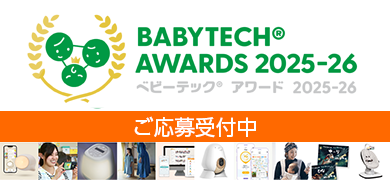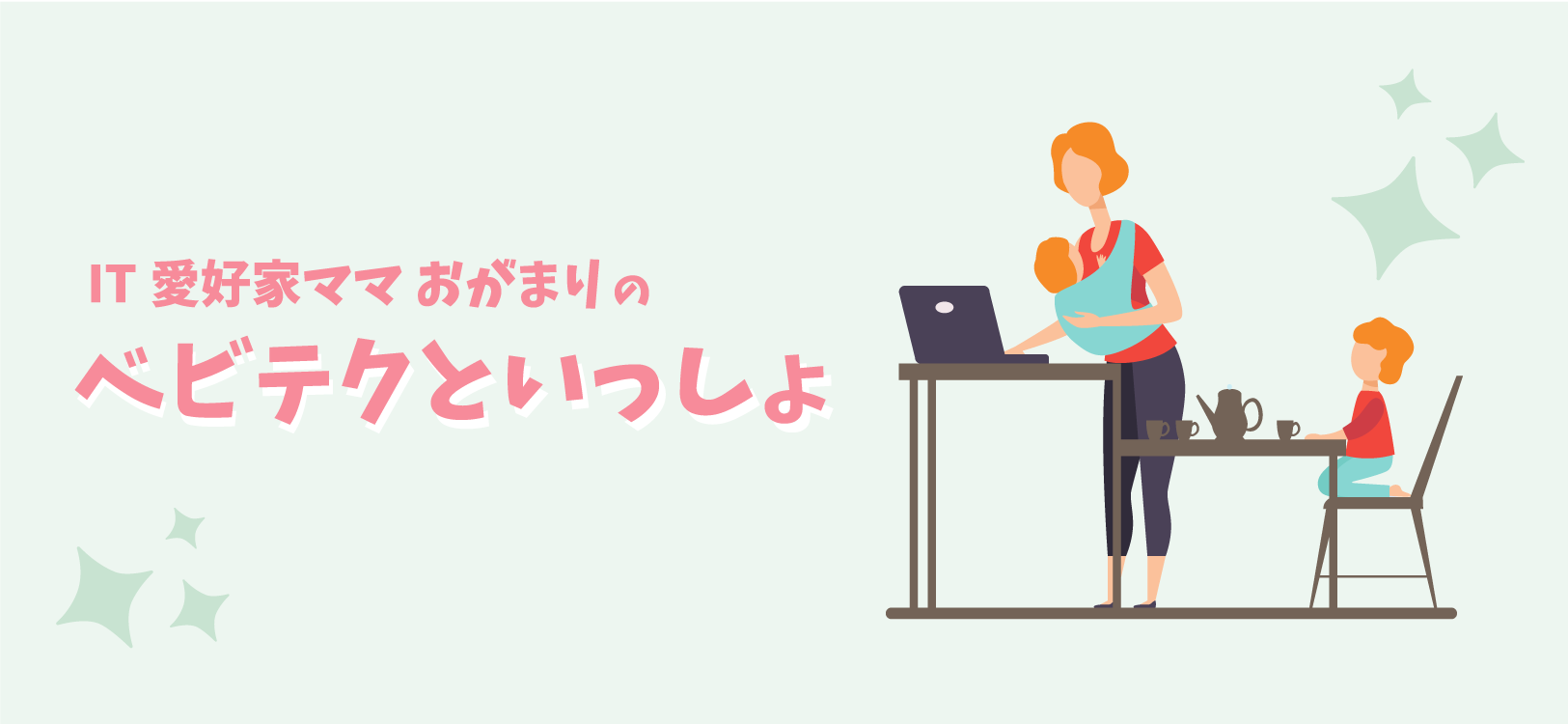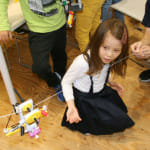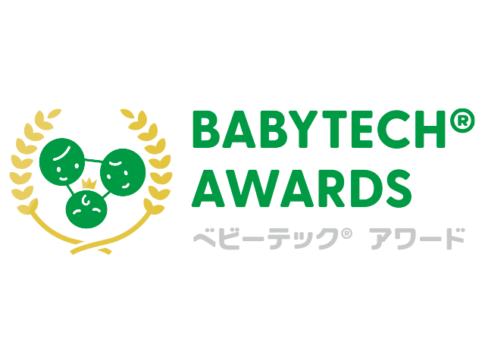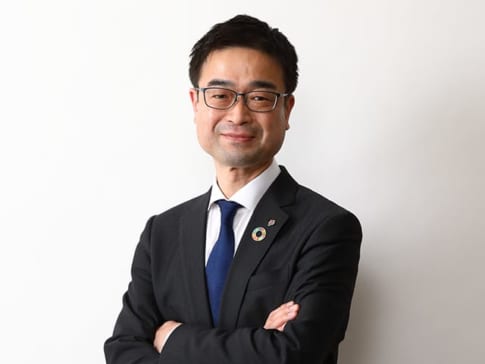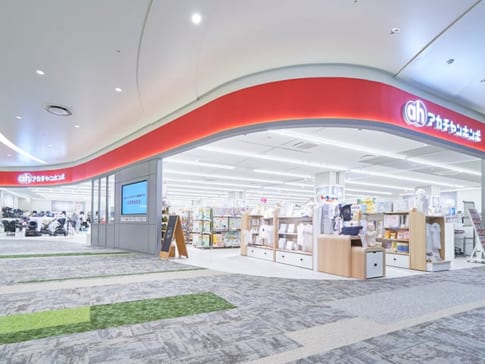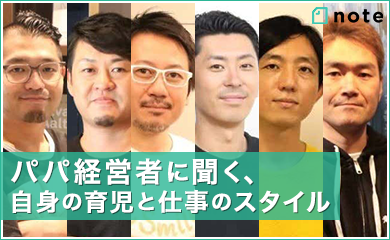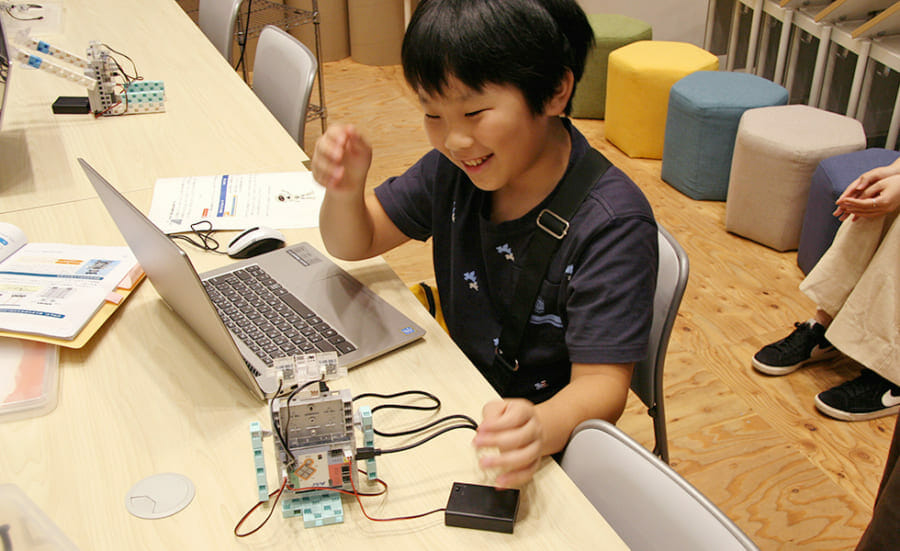
Previous (Advanced Class), ,Previous (Basic Class)and have reported on lessons at STELABO, a STEM education school in Shiodome, Tokyo. In this third and concluding installment, we introduce the "Pro Robo 1st Stage," a course specializing in programming and robotics for 4th to 6th graders.
(We spoke to...)
SB C&S Corporation Hiroaki Nishimura, STEM Business Promotion Office, IoT Business Promotion Division, New Business Headquarters
Develop skills to survive in the future by learning knowledge and creating through trial and error.
Editorial: What do you teach children at the ProRobo 1st Stage?
Nishimura:ProRobo 1st Stage" curriculum consists of 40 lessons, and today was the 19th lesson. Starting with how to use a personal computer, we have had lessons using the programming learning software "SCRATCH" and robotics lessons so far. Future robotics lessons will include "line tracing," which uses sensors to run along lines drawn on the ground, and "cha-un dolls," which are based on karakuri dolls from the Edo period.
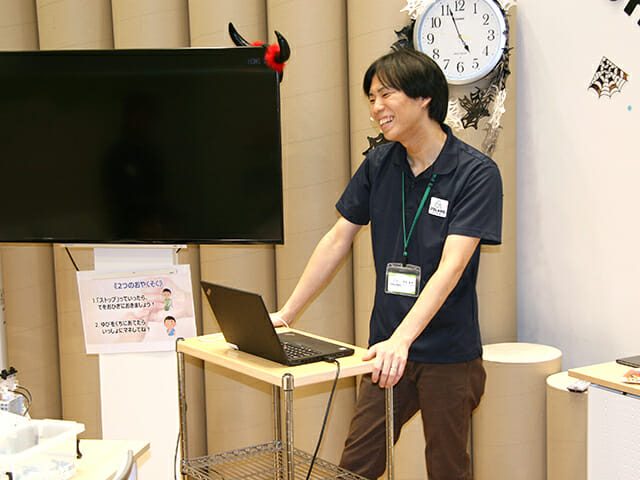
Editorial:Today's lesson was with a robot, wasn't it?
Nishimura:In today's lesson, the students built their own robot and programmed it to solve a problem. The robot has sensors built into its eyes, and when the sensors responded, the robot's arms would raise 90 degrees and it would do a forward crawl.
Editorial:The lesson using "SCRATCH" seemed to be well received by the children, but some children struggled to control the robot.
Nishimura:Unlike conventional operations on a computer screen, robotics requires control of sensors and motors. In SCRATCH, there were no operations such as incorporating sensor values into conditional expressions. It was difficult for the participants to get a sense of how it would feel to control and operate an actual robot.
Editorial:Did the children participating in the lessons already have programming knowledge when they joined?
Nishimura:Most children have no experience operating a computer prior to programming. Our instructors, who have completed in-house training and are certified, will support the use of computers during the lessons, so there is no problem at all if you do not have any prior knowledge or experience.
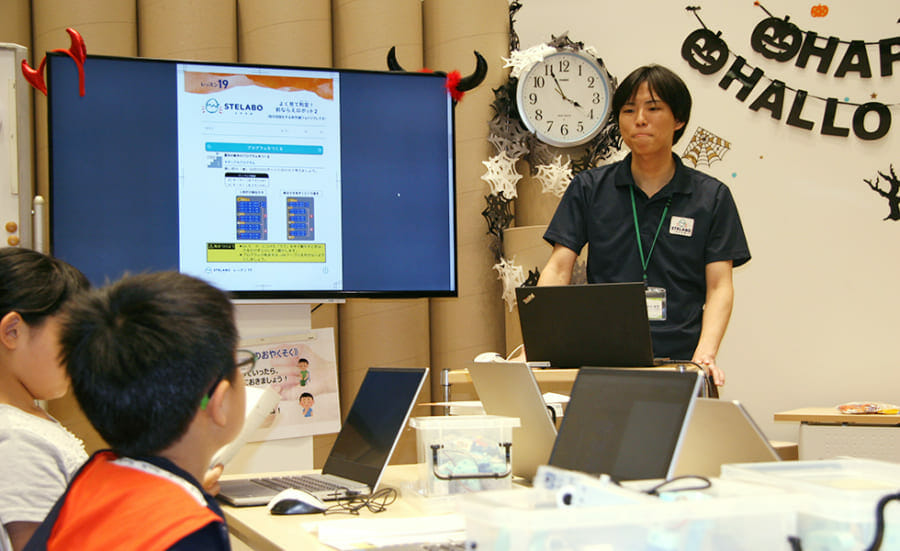
Editorial:The name of the class is "ProRobo 1st Stage," but do you have a plan to develop classes at higher levels, such as second and third?
Nishimura:ProRobo 2nd Stage" is scheduled to open next year as the next step for children currently enrolled in "ProRobo 1st Stage". Programming and robotics courses will be offered for a wide range of ages, not only for elementary school students but also for junior high school students. Therefore, children who are good at programming can take lessons of "Pro Robo 2nd Stage" from the beginning, even if they are elementary school students. At this time, we have the concept up to the third stage for programming and robotics courses.
Aim for the future creators, sneak into the "Pro Robo 1st Stage"!
At the time of the interview, the 19th lesson of "Pro Robo 1st Stage" was taking place, and three students were working on their assignments.
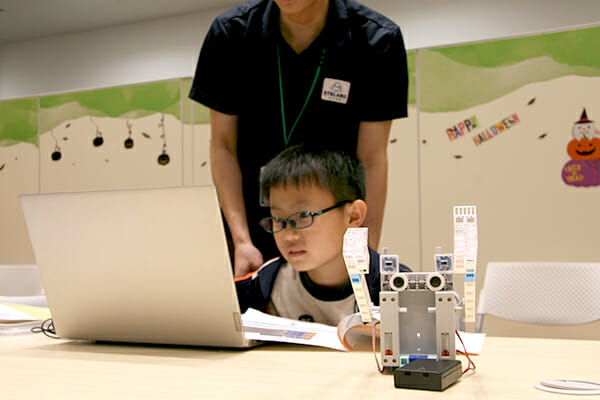
The task this time was to program the robot created by each student to do a forward crawl when standing directly in front of a wall. The teaching material used was Artec Robo by Artec.

The key points are the numerical settings, such as the sensors built into the eyes and the force of the motor that raises the arms!
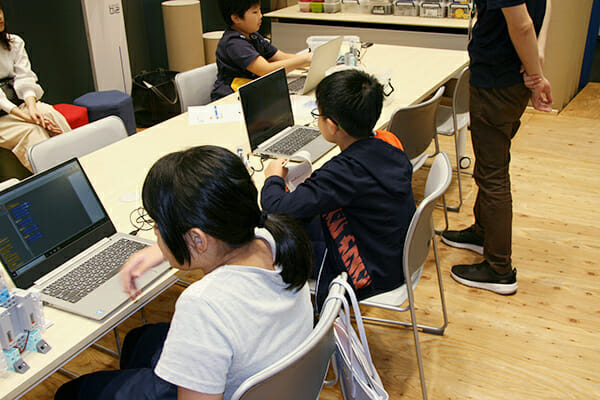
The children struggled with the program while receiving advice from Mr. Nishimura and other instructors! The children's expressions were serious as they tackled their assignments.

A boy who started attending Sterilabo after a free trial session. When I saw the robot in action, I wanted to make one myself. I want to be a programmer in the future.
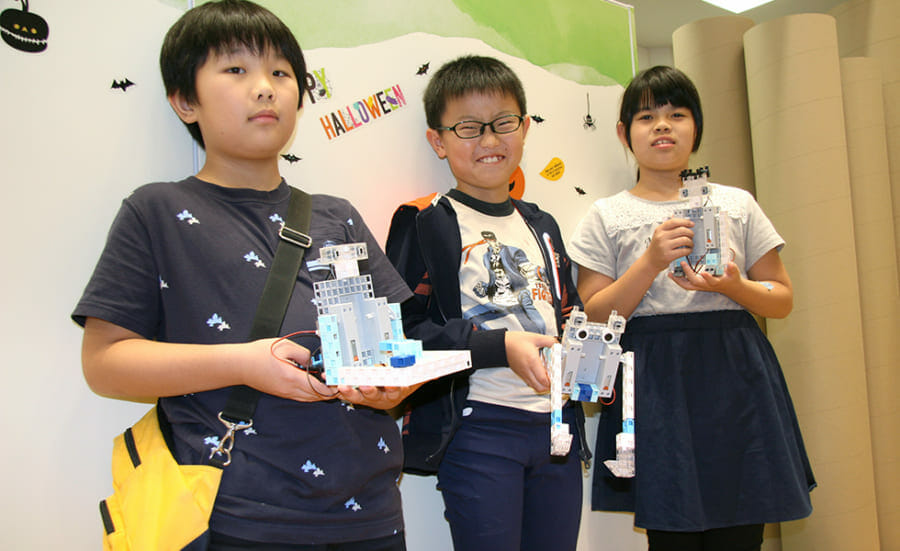
They did not give up and worked hard until the end!
<After completing the interview
AI, IoT, and a variety of other technologies are drastically changing the way our society operates. In our three interviews, we realized that STEM education is becoming increasingly important for the children who will be responsible for such an era. In particular, the basic and advanced classes, which teach the mechanisms and principles of things we usually take for granted, were full of fresh surprises. We look forward to seeing the future development of STELABO as a valuable opportunity to learn the skills to survive in the coming age, which are not confined to the framework of a programming class.
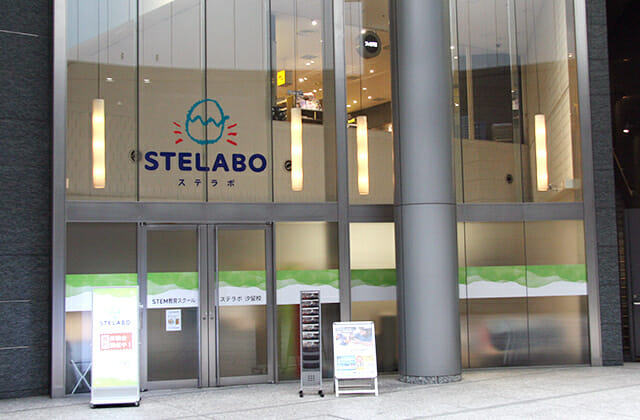
STELABO Shiodome School
1-9-1 Higashi-Shinbashi, Minato-ku, Tokyo
Pedi Shiodome B2F, Tokyo Shiodome Building
0120-414-422
https://stelabo.jp/

